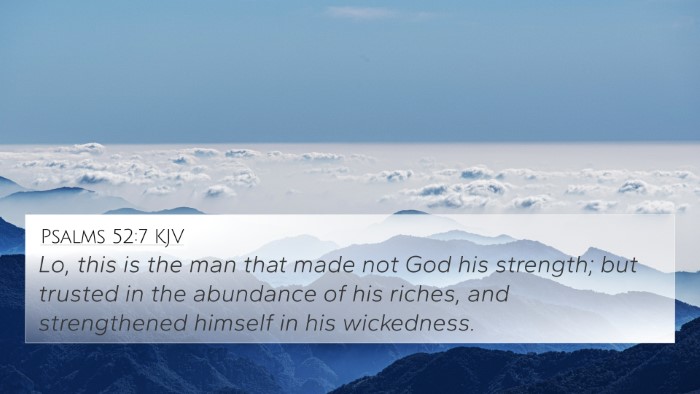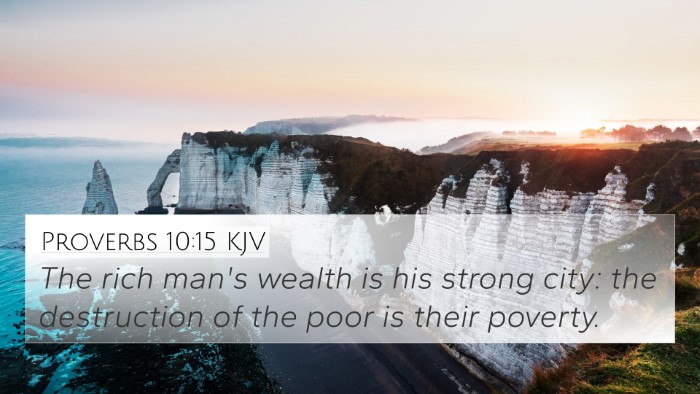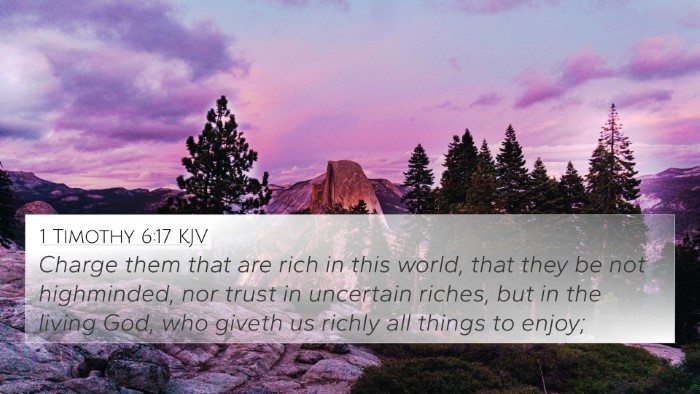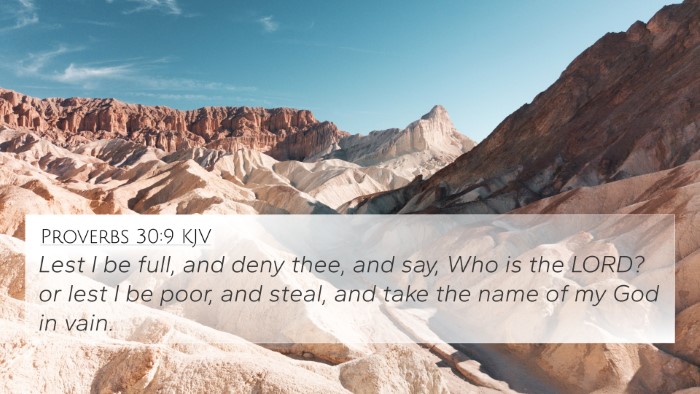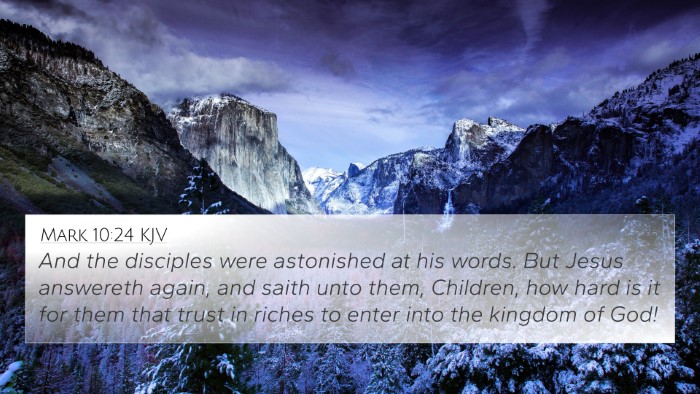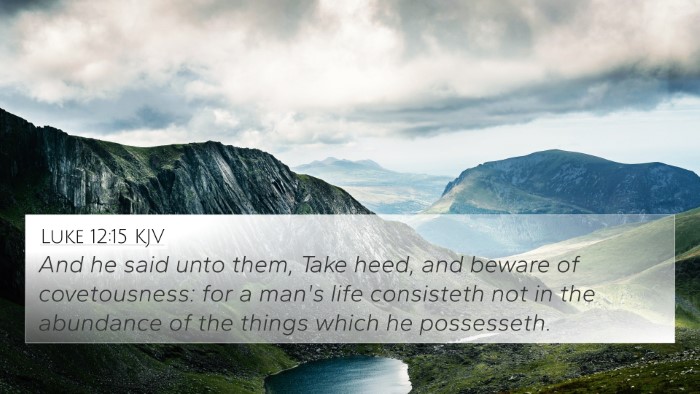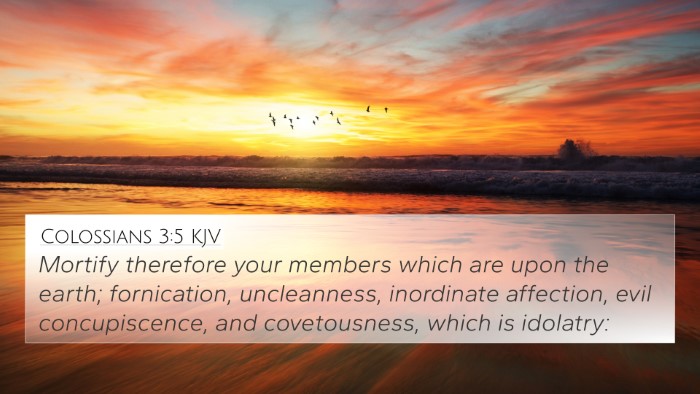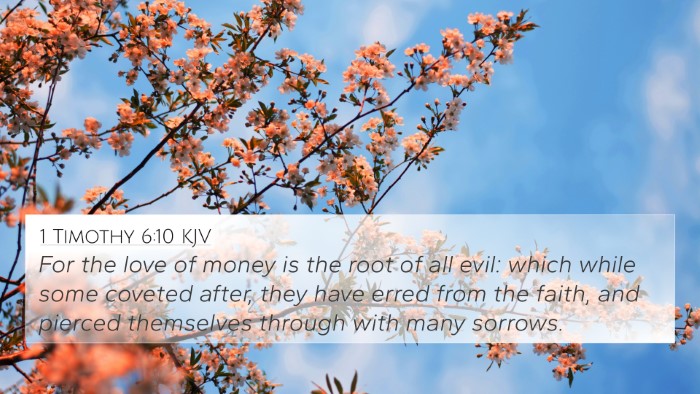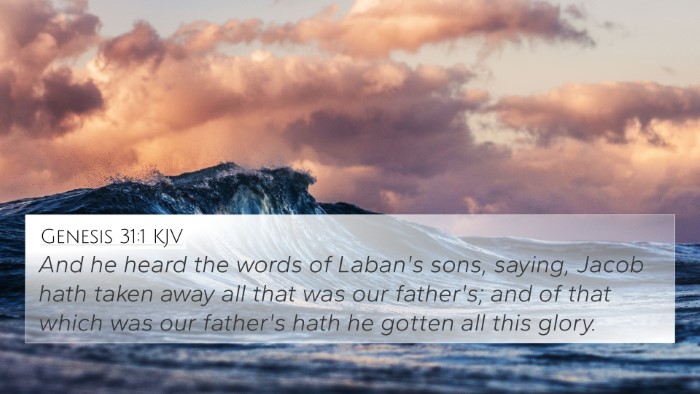Understanding Job 31:24
Job 31:24 states, "If I have made gold my hope, and said to the fine gold, Thou art my confidence;" This verse is a part of Job's declaration of innocence and his refusal to place his trust in worldly riches. Below is a detailed interpretation based on the insights from public domain commentaries.
Summary of Job 31:24
This verse captures Job’s perspective on wealth and his understanding of true confidence. Job argues that placing faith in material wealth is ultimately misguided. This sentiment connects to the wider biblical theme that warns against the reliance on riches and emphasizes faith in God instead.
Key Themes and Meanings
- The Nature of Hope: Job differentiates between hope in God versus placing hope in material wealth.
- Faith and Confidence: Confidence placed in wealth is futile, while true confidence lies in faith and righteousness.
- Conditional Relationships: Job implies that a relationship with God is far more significant than any earthly ties.
Insights from Commentaries
Various biblical scholars provide deeper interpretations of this verse:
- Matthew Henry: He emphasizes that confidence in riches is a common temptation that may lead to moral decay. Job's refusal serves as a reminder that God’s providence should be our source of trust.
- Albert Barnes: Barnes highlights that Job contrasts his previous state of riches with his present affliction, asserting that true riches lie in one's relationship with God, not in physical possessions.
- Adam Clarke: Clarke notes that this verse underscores the concept that wealth can blur spiritual insight; thus, one must guard against letting riches corrupt their moral perspective.
Bible Verse Cross-References
Job 31:24 is connected to several other scriptures that highlight similar themes about wealth and trust:
- 1 Timothy 6:17: "Charge them that are rich in this world, that they be not highminded, nor trust in uncertain riches..."
- Proverbs 11:28: "He that trusteth in his riches shall fall: but the righteous shall flourish as a branch."
- Psalms 62:10: "Trust not in oppression, and become not vain in robbery: if riches increase, set not your heart upon them."
- Matthew 6:19-21: "Lay not up for yourselves treasures upon earth... For where your treasure is, there will your heart be also."
- Luke 12:15: "And he said unto them, Take heed, and beware of covetousness: for a man's life consisteth not in the abundance of the things which he possesseth."
- James 5:1-3: "Go to now, ye rich men, weep and howl for your miseries that shall come upon you..."
- Proverbs 23:5: "Wilt thou set thine eyes upon that which is not? For riches certainly make themselves wings; they fly away as an eagle toward heaven."
Thematic Connections
This verse exemplifies various thematic connections within the Bible regarding the relationship between material wealth and spiritual integrity. Not only does it reflect Job's sentiments during his trials, but it also aligns with the teachings of Christ and the Apostles regarding the dangers of materialism. Below are some thematic connections:
- Faith vs. Materialism: The struggle between having faith in God versus the allure of wealth is a recurrent biblical theme.
- Enduring Trials: Job’s example demonstrates faith during hardship, suggesting wealth is not a measure of God's favor.
- Spiritual Riches: The New Testament emphasizes laying up treasures in heaven, contrasting physical wealth with spiritual gain.
Practical Application and Reflection
Job 31:24 serves as a potent reminder of where individuals place their confidence. Believers are encouraged to reflect on their priorities and consider how their understanding of wealth influences their relationship with God.
Conclusion
In summary, Job 31:24 calls readers to examine their heart’s posture towards wealth and aligns with a broader scriptural narrative warning against misplaced trust in material things. Through biblical cross-references and thematic analyses, this verse illustrates the timeless struggle between faith and materialism. It invites believers to place their hope and confidence in God rather than in transient riches.




